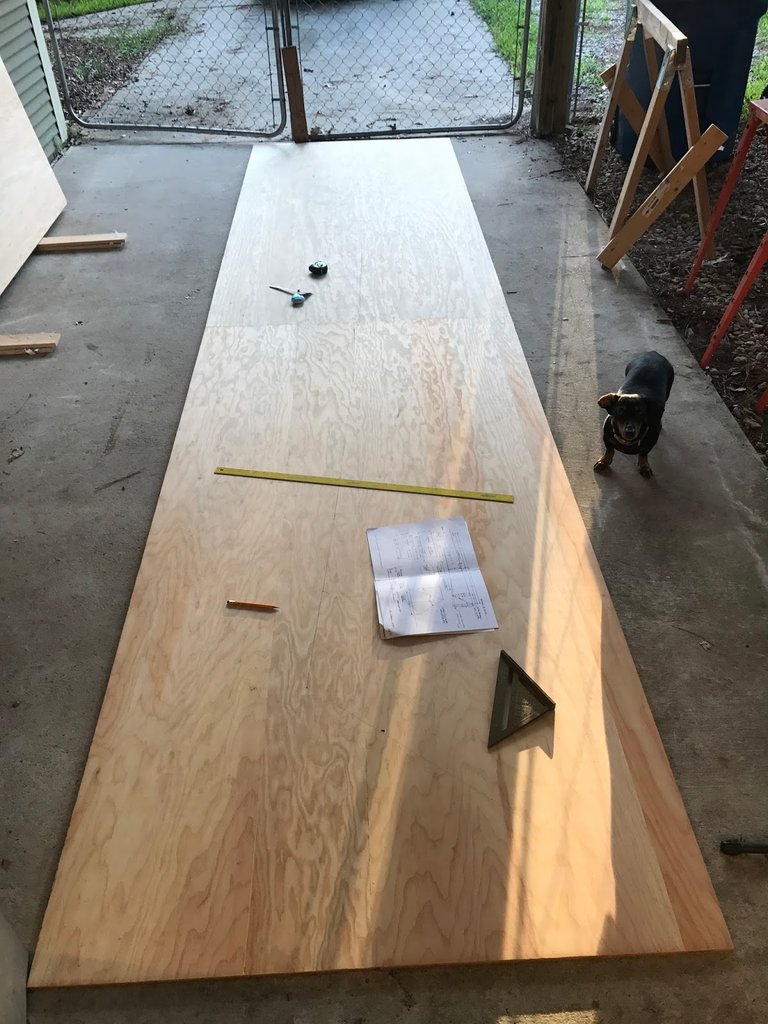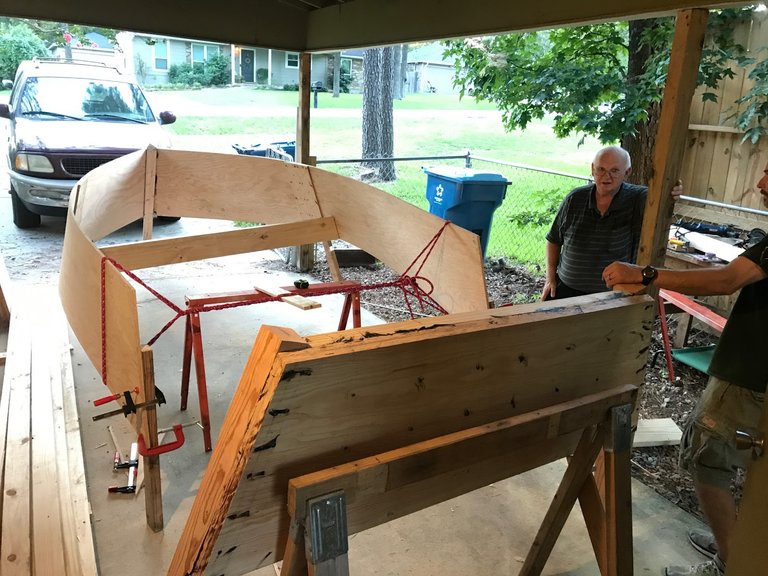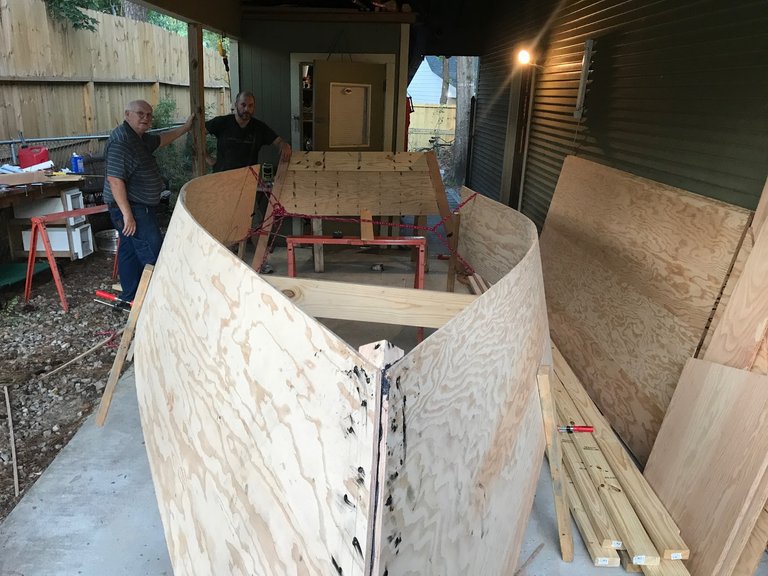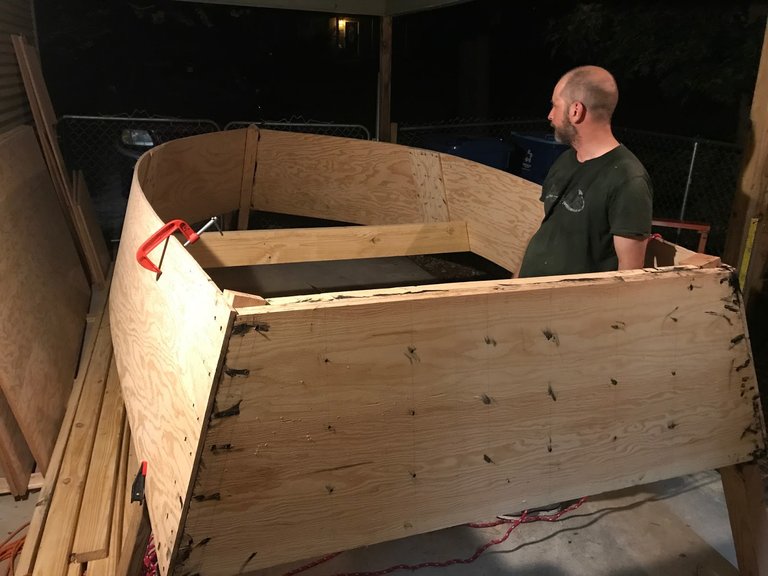Well, I bought all of this expensive lumber, so I might as well get the project started. I spent last Sunday lofting the lines from the plans onto my plywood and cutting out my initial panels. The process for a "plywood-on-frame" construction is simple. The form of the boat will be determined by the angles of the stern and stem posts and that of the plywood panels. The sheer line of the boat is a straight, factory edge (sheer is the top edge/side rail). The bottom of the panel has a curve that will aid in forcing the bow of the boat upwards has the panels are spread apart, thereby providing an approximate 4.5" of rocker to the front. This will be more easily explained via photos.
This is Boudain. He is the Shop Director and never works hard at anything. Here he is sleeping on the job site again.
Lofting the lines from the plans onto the plywood sheets. Addy, is Shift Foreman and will bite you in the ass if you don't do what she says.
Side and transom panels cut and ready for assembly
Side Panels being joined with glue and screw using butt joints. I had a length of train track from a trade made last year and a truck rim that were heavy enough to provide good clamping pressure.
This is the most exhilarating part of the build. The odd pieces of lumber magically transform into something that loosely resembles a boat! This is accomplished by liberal use of foul language, tools, and a Spanish Windlass (sorry Barcelona, we didn't coin this term) as a come-along for drawing the side panels around a temporary form. Scary creaks, and pops can be heard as the wood fibers are strained.
Assembly of the transom panel. The transom is comprised of two 3/4" thick panels glued and screwed to the stern posts and bottom beam. The stern posts were made from 4x4 fir posts that, after much head scratching (measure once, cut twice remember?) were beveled to allow for a proper angle to mate with the side panels. This assembly is heavy and should accommodate the 30ish HP motor to be installed.
That’s a pretty good start! More to come.







